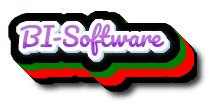In today’s fast-paced and competitive business landscape, companies are constantly seeking ways to improve their relationships with customers, streamline operations, and drive growth. One tool that has become essential for achieving these goals is Customer Relationship Management (CRM) software. In this article, we will delve into the world of CRM software, exploring what it is, how it works, and the benefits it can bring to businesses of all sizes.

What is CRM Software?
CRM software is a type of application that helps companies manage their interactions with customers, clients, and prospects. It provides a centralized platform for storing and analyzing customer data, tracking sales and marketing activities, and automating various business processes. By using CRM software, businesses can gain a deeper understanding of their customers’ needs, preferences, and behaviors, enabling them to build stronger, more meaningful relationships.
Key Features of CRM Software
Modern CRM software typically includes a range of features that cater to different aspects of customer relationship management. Some of the most common features include:
- Contact Management: storing and organizing customer contact information, including names, addresses, phone numbers, and email addresses.
- Sales Force Automation: automating sales processes, such as lead tracking, opportunity management, and sales forecasting.
- Marketing Automation: automating marketing campaigns, including email marketing, social media management, and lead generation.
- Customer Service and Support: providing tools for customer service representatives to manage customer inquiries, issues, and feedback.
- Analytics and Reporting: generating reports and analytics on customer behavior, sales performance, and marketing effectiveness.
Benefits of Using CRM Software
The benefits of using CRM software are numerous and can have a significant impact on a company’s bottom line. Some of the most notable advantages include:
- Improved Customer Relationships: by providing a centralized platform for customer data, CRM software enables businesses to build stronger, more personalized relationships with their customers.
- Increased Sales: by automating sales processes and providing sales teams with real-time customer data, CRM software can help businesses close more deals and increase revenue.
- Enhanced Customer Service: by providing customer service representatives with the tools and information they need to resolve customer issues quickly and efficiently, CRM software can help businesses improve customer satisfaction and loyalty.
- Better Decision-Making: by providing analytics and insights on customer behavior and sales performance, CRM software can help businesses make more informed decisions about their marketing and sales strategies.
- Increased Efficiency: by automating routine tasks and streamlining business processes, CRM software can help businesses reduce costs and improve productivity.
Types of CRM Software
There are several types of CRM software available, each with its own unique features and benefits. Some of the most common types include:
- On-Premise CRM: traditional CRM software that is installed and hosted on a company’s own servers.
- Cloud-Based CRM: CRM software that is hosted in the cloud and accessed via the internet.
- Mobile CRM: CRM software that is designed for use on mobile devices, such as smartphones and tablets.
- Social CRM: CRM software that integrates with social media platforms, enabling businesses to engage with customers and track social media activity.
Choosing the Right CRM Software
With so many CRM software options available, choosing the right one can be a daunting task. Here are some factors to consider when selecting a CRM software:
- Business Size and Type: consider the size and type of your business, as well as your specific CRM needs.
- Features and Functionality: evaluate the features and functionality of each CRM software, and choose the one that best meets your needs.
- Scalability: consider the scalability of the CRM software, and choose one that can grow with your business.
- Integration: consider the integration of the CRM software with other business applications, such as marketing automation and customer service software.
- Cost: evaluate the cost of the CRM software, including any upfront fees, subscription costs, and ongoing maintenance costs.
FAQs
- What is the difference between CRM and ERP?: CRM (Customer Relationship Management) software is designed to manage customer interactions, while ERP (Enterprise Resource Planning) software is designed to manage business operations, such as finance and supply chain management.
- Do I need CRM software if I have a small business?: Yes, CRM software can be beneficial for businesses of all sizes, including small businesses. It can help you manage customer interactions, track sales and marketing activities, and improve customer relationships.
- Can I customize CRM software to meet my business needs?: Yes, many CRM software solutions offer customization options, such as custom fields, workflows, and integrations with other business applications.
- Is CRM software secure?: Yes, most CRM software solutions have robust security measures in place to protect customer data, including encryption, access controls, and regular backups.
- How much does CRM software cost?: The cost of CRM software varies depending on the solution, features, and number of users. Some CRM software solutions offer free trials or basic plans, while others require a subscription or upfront fee.
Conclusion
In conclusion, CRM software is a powerful tool that can help businesses of all sizes build stronger, more meaningful relationships with their customers. By providing a centralized platform for customer data, automating sales and marketing processes, and offering analytics and insights, CRM software can help businesses drive growth, improve customer satisfaction, and increase revenue. With so many CRM software options available, it’s essential to choose the right one for your business needs and goals. By considering factors such as features, scalability, integration, and cost, you can find a CRM software solution that helps you unlock your business potential and achieve long-term success. Whether you’re a small business or a large enterprise, CRM software is an essential tool for any business that wants to thrive in today’s competitive market.
Closure
Thus, we hope this article has provided valuable insights into The Power of CRM Software: Unlocking Business Potential. We hope you find this article informative and beneficial. See you in our next article!
